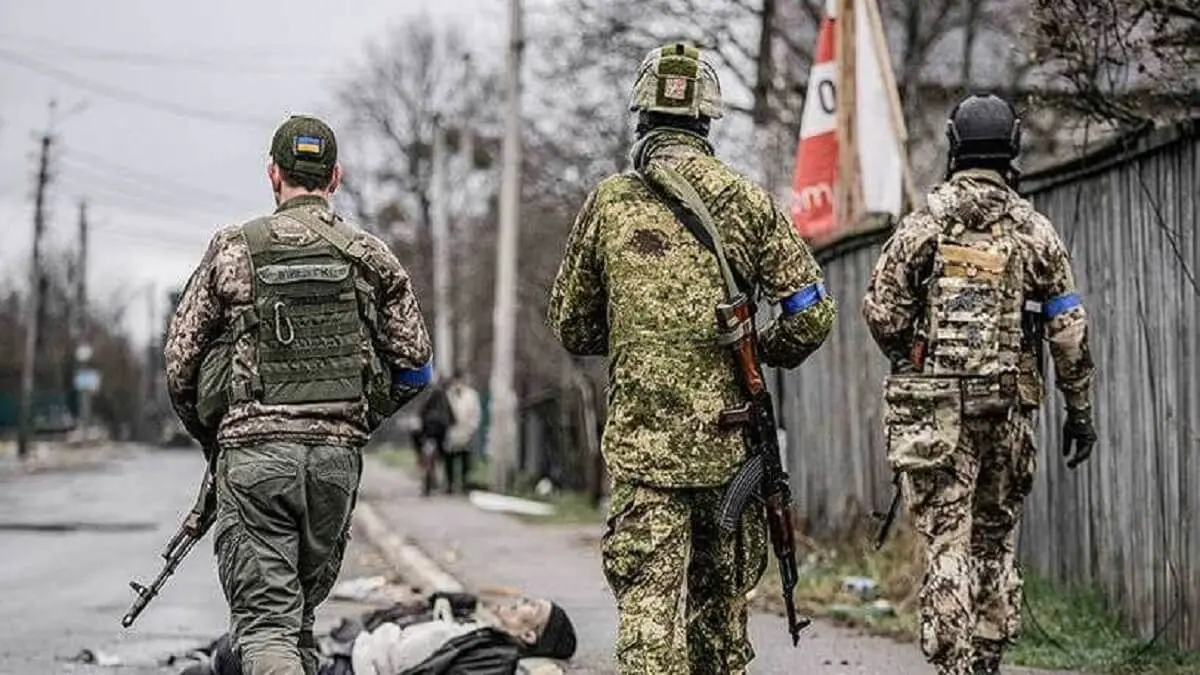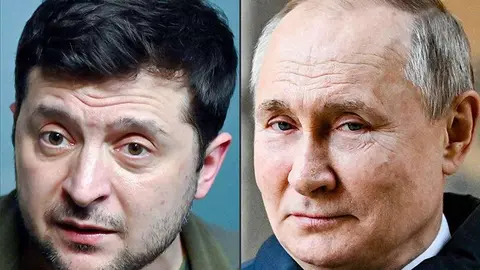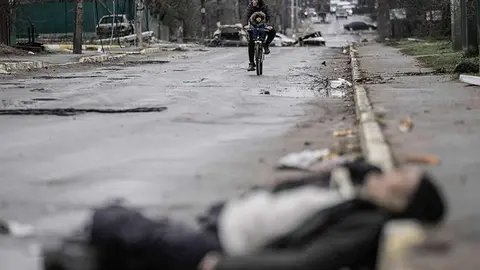The genesis of support for Ukraine

The conflict in Ukraine is probably the most followed and scrutinised conflict in history. And seeing all the reactions, comments, opinions and analyses that it has provoked, it is interesting to make some reflections.
One aspect that is often overlooked or tends to be confused is the role of the Atlantic Alliance as an organisation and that of its members as individual and independent actors. Although it may seem incongruous or contradictory, on many occasions the interests of the one and the other do not coincide. This can be explained by the fact that non-convergence does not necessarily mean opposition.
In this scenario we observe in a general way that the interests of NATO countries derive from the political level. The inertia that drives and directs these interests usually has economic, industrial, social or public opinion objectives and almost always the particular interest of the political formation in power. But they rarely have a truly operational motivation.
On the contrary, the Alliance's decisions, even if they require unanimous approval by the NAC, are purely operational. And what is the meaning of this? The only interest guiding its decisions and actions is the protection and defence of member states and their territory, as well as compliance with the agreements signed by member states and reflected in the Atlantic Treaty.
This is one of the main reasons why NATO has not been involved as an organisation in the delivery of the various assistance packages to Ukraine beyond facilitating some coordination among the members that have decided to provide such support.
The decision to assist with equipment, quantities, timing, etc. are purely national and sovereign decisions, and therefore have a political and self-interested background. The Ukrainian cause is just, the invasion is reprehensible and reprehensible, and all aid is justified. But in politics, and especially in international politics, everything, absolutely everything is done out of self-interest. Altruism is a rara avis, and this time it is no different.
This leads us to affirm that we can be certain that at the very moment that the situation changes or that the different donor countries face consequences or sacrifices beyond what the different governments consider acceptable, or that the threat looms over their own territory, that aid will diminish or cease.
Understandably, it is those that feel the threat most closely, both geographically and historically, despite their relatively small size and economic weight, that are contributing the most in percentage terms. But if we turn to the two main providers of aid, it is equally clear that both have a particular and political background of interest.
Does this mean that, taking the different countries as individual and independent actors as well as the Atlantic Alliance as a whole, there are doubts about the legitimacy of the Ukrainian cause? The answer could not be more obvious and emphatic: no. The legitimacy of the Ukrainian cause is not in question. That legitimacy is not in question. Just as the legitimacy of the support being provided is not in question. But this should not lead to a naïve analysis. Over and above this recognised legitimacy, there are national interests and the interests of the Alliance. And since we are talking about a real threat to the security and integrity of both countries and the Alliance, this becomes even more relevant.
Again, this is not incompatible with the assertion that the war we do not want to fight on NATO territory is being fought in Ukraine. This phrase refers to the fact that the best way to limit Russia's expansionist aspirations is, once it has taken the step of attacking Ukraine, to help degrade its capabilities in such a way that they do not pose a threat for a reasonable period of time. For if this does not happen, there is no guarantee that in time it will repeat a similar action against any other neighbouring country.
But even here, of course, those particular interests referred to above come into play. For the US, for example, a Russian Federation with diminished military capabilities would allow it to devote attention and resources to the Asia-Pacific region, which is its real priority. Bordering countries, especially the Baltic republics, would remove fears of Russian interference in their internal affairs. Even the European powers each have their own motives for involvement in the conflict, mainly related to attempts to become the European Union's reference point after the UK's exit and Germany's incipient signs of weakness. But as harsh as it may seem, we cannot forget the pragmatism that dominates international relations and especially this type of situation.
The element of convergence between these national interests and those of NATO is none other than the capabilities of each of the member countries. Capabilities that are also at least partially attributed to the Alliance and its regional defence plans.
This is the main reason why none of the nations contributing to Ukraine's assistance is divesting itself of in-service materiel (there are exceptions, but only in very small quantities and of materiel whose replenishment is assured in the short term). The development of the conflict has made it clear that the risk of escalation is real and possible, and at times has even become probable. And that is something that is very much in the forefront of people's minds. And that is precisely why no one wants to run the risk of giving up capabilities, even if only to hand them over to Ukraine to use to degrade Russian forces, which, if the tables are turned, it may need. Moreover, these capabilities are what the Alliance relies on to execute its defence plans.
It seems obvious, therefore, that despite justified solidarity with Ukraine, no one is willing to take certain risks. This attitude is not at all reprehensible. In such situations, the first priority is to ensure one's own defence, and the second is to contribute to the supranational organisations on which this also relies.
It is a difficult balance to maintain, but the fulcrum of this balance is none other than the territorial integrity of NATO and its member states. Giving up capabilities that could take years to replenish, with the excuse or hope that their use by Ukrainian forces will achieve the goal we all desire, but without the need for direct involvement, is not only hypocritical but also reckless. For neither is success guaranteed, nor does it in any way prevent such a possible escalation. And of course, if it does happen, we may very much regret the loss. This is one of the reasons why those countries closest to the threat have been very careful to keep their armed forces intact.
On the other hand, NATO's sole fixation is to have equipment, personnel and plans in place to respond appropriately to a possible turn of events, which, we should not forget, may or may not be deliberate. The Alliance's posture is based on four concepts: Deter, Defend, Defeat and Restore. All plans are based on these, and the key is the first - if deterrence is effective, there is no need to go through the second. But for this to be the case, each nation and the organisation as a whole must keep its capabilities intact. Otherwise a window of opportunity will be opened that can be costly.



